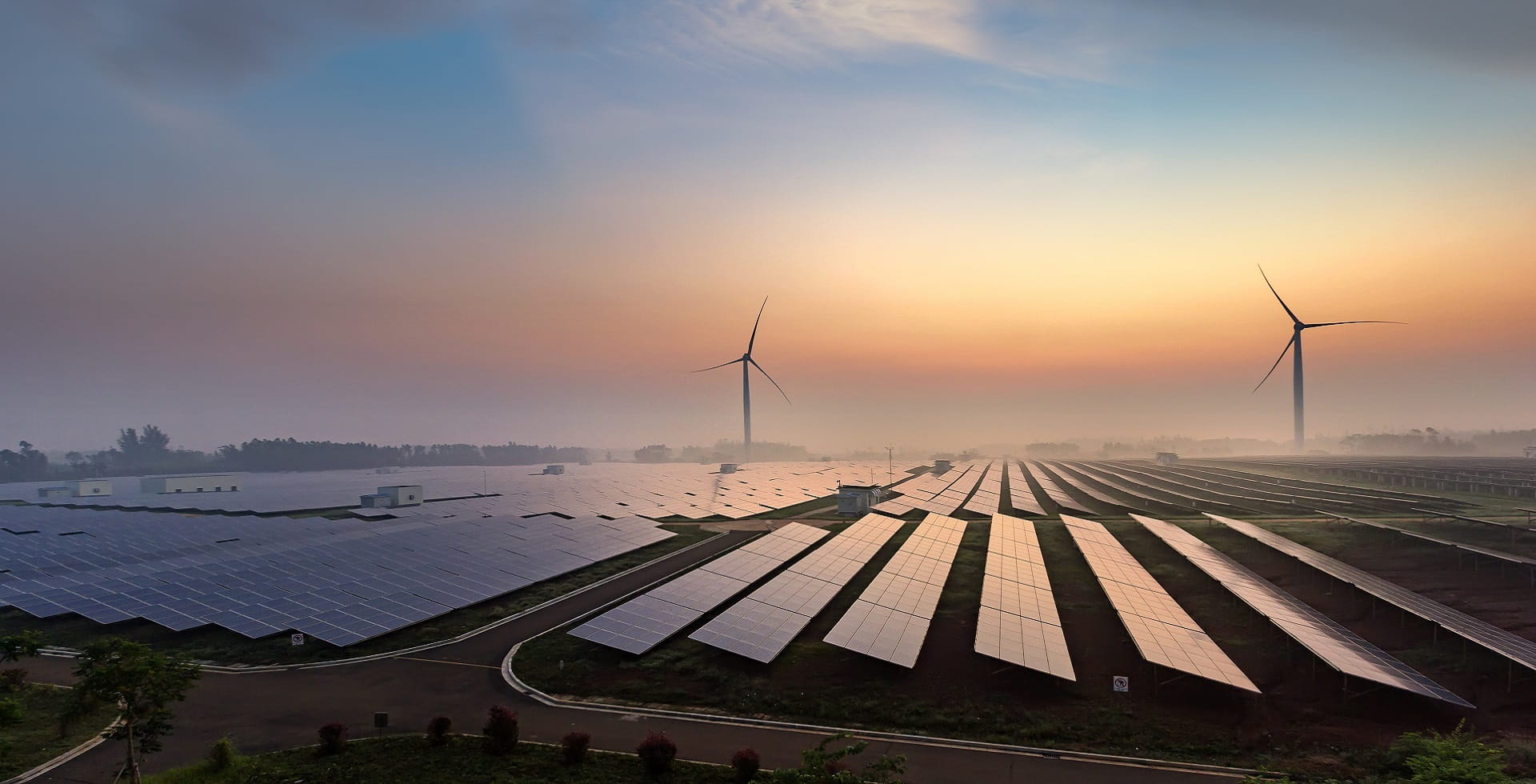Stewardship Principles
Oil & gas majors: active stewardship rather than divestment

Summary
The best way for investors to ensure that oil majors become enablers of the global transition to net zero by 2050 could be through concerted engagement. The world must urgently expand its clean energy sources, and we believe divestment would do little to achieve this goal.
Key takeaways
|
The relationship between energy and climate change is complex
Energy powers progress and is essential to deliver economic development and fundamental human rights: nearly 1 billion people worldwide still do not have access to power simply for cooking and heating. However, population growth and rising economic output are driving up greenhouse gas (GHG) emissions, most of which are caused by burning fossil fuels to meet energy needs. It is therefore vital not only to tackle climate change (UN Sustainable Development Goal 13), but also to ensure access to affordable, reliable and sustainable energy (UN SDG 7).
The IEA’s pathway to net-zero emissions
In May 2021, the International Energy Agency (IEA) published its pathway to reach net-zero emissions by 2050. While it is one pathway, rather than the only pathway, this plan is an official IEA blueprint, and as such it has inherent credibility. It will be used by many investors to align their portfolios to a net-zero trajectory and will inform corporations’ plans to reach net zero. The IEA’s document sets out an ambitious and radical blueprint. According to Dr Fatih Birol, IEA executive director, it highlights the “gap between rhetoric and real life”. Without the clear picture of the challenge that the IEA presents, we could end up in a place where companies and portfolios are decarbonising, but the real economy isn’t.
Under the IEA net-zero pathway, the global energy system will look completely different by 2050. Global energy demand will be around 8% lower than today, but that energy will power a global economy more than twice as large, with a population 2 billion greater.
- Almost 90% of electricity will be supplied by renewable energy sources (almost 70% of that figure will come from wind and solar; nuclear power will supply much of the rest).
- The largest source of energy in the world will be solar power (approximately 20% of supply, up from 1% today).
- Oil and gas consumption will decline by 75% and 55%, respectively, by 2050.
- There will be no need for new oil and gas supplies, and the remaining demand will be met by low-cost producers. The market share of OPEC (Organisation of the Petroleum Exporting Countries) nations will climb to 52%, from 37% currently.
- All remaining coal-fired power plants will use technologies that remove harmful emissions.
Overall, the IEA has identified more than 400 milestones to help governments meet their target of keeping global warming within 1.5°C of pre-industrial levels.
Divestment will not decarbonise the economy
Divestment will do little to address climate change. It will simply displace the problem. If responsible, active investors divest, potentially less responsible investors (or those that are less exposed to reputational and regulatory pressures) will replace them and continue to fund “business-as-usual” strategies. Oil and gas majors account for just 12% of global reserves, 15% of production and 10% of estimated emissions from industry operations. The winners from divestment would be state-owned enterprises and national oil companies, which own the bulk of reserves. The benefit in climate terms is unclear.
Given the importance of fossil-fuel revenues to their economic growth and social stability, it is debatable whether petrostates will “strand” their reserves to curb global warming. The IEA pathway suggests that OPEC and other oil-exporting countries will see their governments’ hydrocarbon revenues collapse by 75%.
State-owned and national companies led oil production in 2020
1,000 barrels of oil per day

Source: Statistica. Most recent available data as at 7 June 2021.
It is equally important to influence the pattern of energy demand. More than half the cumulative shift to green energy consumption envisaged in the IEA net-zero pathway is linked to consumer choices. Governments must therefore provide the regulatory and policy frameworks within which companies will formulate their business plans and consumers will change their habits.
We need an orderly energy transition supported by current and emerging technologies. Global action on energy efficiency is essential. This critical area can deliver big reductions in emissions while supporting economic growth, reducing air pollution and saving consumers money. Renewables have a major role in combination with natural gas (viewed as a transitional fuel for power generation since it generates half the GHG emissions of coal) and further supported by battery storage.
Green hydrogen is a credible option, although it needs demand at greater scale to become economically viable. Sustainable biofuels can provide a substitute for conventional fuels. Carbon capture, usage and storage (CCUS) is often promoted by the oil and gas industry, as well as energy-intensive sectors such as steel and cement, to reduce GHG emissions. However, CCUS currently lacks political support and social acceptance and requires a pricing signal in the form of a global carbon tax. Nature-based solutions such as reforestation and wetlands can help to avoid, reduce and offset emissions, provided they are independently verified.
Oil majors have important skills that can support the transition
The IEA also recognises that oil majors have a role to play in making its roadmap a reality.1 They have the global reach, large-scale project management capabilities, government relationships and commercial expertise to manage volatility along integrated energy value chains. European oil majors are competing successfully in renewable energy auctions in partnership with specialist infrastructure investors and adopting ambitious medium and long-term capacity targets. That said, oil majors are generally perceived as being part of the problem.
Climate change and finite supplies of scarce resources are two sides of the same coin – and interlinked
We believe it is important to take a nuanced approach that considers and compares GHG emissions from all energy sources across their full lifecycle. Renewable energy is intermittent by nature and must be offset by nuclear (decarbonised but controversial), natural gas or – in the worst case – coal. Manufacturing solar panels and wind turbines is carbon-intensive and major questions remain over their decommissioning and recycling. Depletion of natural resources must be carefully monitored, particularly the rare-earth minerals required to make solar panels and batteries. The IEA estimates that annual demand for critical minerals will increase from around 7 million tonnes in 2020 to 42 million tonnes by 2050. It admits that this demand will be much more concentrated as deposits of rare-earth minerals are more geographically focused than fossil fuels. These concentration issues create supply challenges that will need to be addressed.
Oil majors must demonstrate their commitment to net zero
If we are to believe that oil majors can play a constructive role in the energy transition, they must provide evidence of their commitment to a low-carbon transition, such as:
- Endorsing the recommendations of the Taskforce on Climate-Related Financial Disclosures
- Reporting more consistently on climate-related risks
- Joining the Science-Based Targets initiative and working on the oil and gas decarbonisation framework
- Committing to reach net zero by 2050 as well as setting interim targets
- Reporting transparently and credibly on progress in reducing Scope 1 and 2 carbon emissions as well as on the most material Scope 3 emissions
- Addressing methane emissions as a first step to protecting the green credentials of natural gas
- Monitoring their lobbying activities to ensure that these do not contradict their commitment to a low-carbon transition
- Building out their new energy businesses
In the future, we plan to invite oil majors to put their climate action plans to a shareholder vote. Transparency in this area is critical if investors are to hold them to account on their decarbonisation strategy. How we vote ourselves will depend on the progress of our engagement with the boards. Engagement at the corporate level is essential. But by active stewardship we also mean engagement at the policy level, both individually and collectively.
1IEA World Energy Outlook, January 2020, p160 onwards
Don't downsize your dreams
Inflation: beyond transitory

Summary
Inflation has made a forceful comeback recently, and we believe it will last longer than the financial markets and many investors currently anticipate. In part one of a two-part paper, we look at the factors that may cause a more persistent rise in consumer price inflation – and why it matters to investors.
Key takeaways:
- The recent inflation spike has been amplified by several extraordinary and temporary factors – including the post-Covid rebound and base effects
- But there are other reasons why consumer price inflation may turn out to be “sticky” – including continued accommodation from central banks, less globalisation and an aging population
- We also expect the fight against climate change and economic inequality to contribute to upward inflationary pressure












